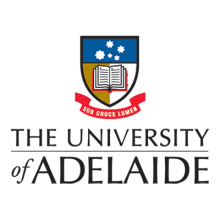
Feeling overworked and under-rewarded? Then you may be interested in applying for a new “idleness grant”. The University of Fine Arts in Hamburg is offering three €1,600 (£1,400) scholarships to applicants who convince a jury that their chosen area of “active inactivity” is particularly impressive or relevant, The Guardian reported, perhaps suggesting that running yourself into the ground doesn’t have to be the academic way. The application form consists of four questions: What do you not want to do? For how long do you not want to do it? Why is it important not to do this thing in particular? Why are you the right person not to do it? The deadline is 15 September (although it is only open to applicants in Germany). But remember not to work too hard on the application.
As dramatic falls from grace involving university leaders go, there can’t be much to top the explosion of revelations surrounding Jerry Falwell Jr, who was pushed to resign as president of Liberty University after a former swimming pool attendant described his involvement in years of sexual encounters with the evangelical powerbroker’s wife. Mr Falwell, whose controversial endorsement boosted Donald Trump in his 2016 presidential campaign, was asked to quit after his one-time pool attendant, Giancarlo Granda, alleged a series of sexual relations with Becki Falwell in Mr Falwell’s presence. Devoutly Christian Liberty – founded by Mr Falwell’s late father in the 1970s – had already placed the president on indefinite leave after he posted an Instagram photo of himself on a yacht holding a drink, with his arm around his wife’s assistant and their clothing partly undone. The hypocrisy exposed by the scandals has caused Liberty students and those at other Christian colleges to question their own faith, according to a report in Newsweek.
Although not much comes close to the Liberty drama, the University of Adelaide was trying its best after more details emerged about the serial sexual misconduct – and Machiavellian aftermath – that dethroned the leaders of the institution. An anti-corruption commissioner investigating former Adelaide vice-chancellor Peter Rathjen, who groped two female colleagues during a university function in April 2019, said not only had he shown “egregious disrespect” to the women, but also then lied to the institution’s chancellor, Kevin Scarce, who confronted him about the allegations. Rear Admiral Scarce was later forced to resign after being poorly advised on how to handle the scandal, a position investigator Bruce Lander said he should not have been put in. To add insult to injury, The Australian reported that staff at Adelaide are now up in arms that they have taken a pay cut because of the Covid crisis while Professor Rathjen, who the university said last month was stepping down “due to ill health”, received a huge payout on leaving.
Covid-19 is spiralling out of control in the US, but if you’re an academic at the University of Alabama you may want to keep shtum about that. More than 500 students, faculty and staff at the institution tested positive for the virus in the first five days of classes, but professors in some departments were explicitly instructed not to tell their students about an outbreak. “Do not tell the rest of the class” if a student tests positive, an email from the politics department reads, according to The Daily Beast. It goes on to say that students who test positive are not considered an exposure risk if masks are worn and social distancing is practised. There seems to be little hope that US university campuses will be going “back to normal” any time soon.
As Times Higher Education went to press, Gavin Williamson continued to evade the chop after overseeing the A-levels “fiasco” (if you want to describe it politely). Last week the most senior civil servant in the Department for Education, Jonathan Slater, agreed to step down, following the resignation of Sally Collier, chief executive of exams regulator Ofqual, which presided over the derided moderation algorithm. Boris Johnson said that new leadership was needed at the DfE after the crisis, which initially saw more than a quarter of a million results being downgraded. However, the education secretary seemed set to cling on to his job for at least a little longer. Kate Green, the shadow education secretary, said that under Boris Johnson’s government civil servants “have time and time again taken the fall for the incompetence and failures of ministers”.
Academics are known for having an acronym for almost everything, but a new study has found that rather than making their work easier to understand, it is – perhaps unsurprisingly for some – making journal articles almost unintelligible. Many two- or three-letter acronyms were found to have multiple meanings depending on the setting, a group of researchers found. They analysed 70 years of scholarly publishing and found more than 1.1 million unique abbreviations embedded in the titles and abstracts of almost 25 million papers. Half of them were used fleetingly and 30 per cent only once. During the period studied, acronyms had more than tripled in article titles and multiplied tenfold in abstracts, turning journal articles into alphabet soup.
Register to continue
Why register?
- Registration is free and only takes a moment
- Once registered, you can read 3 articles a month
- Sign up for our newsletter
Subscribe
Or subscribe for unlimited access to:
- Unlimited access to news, views, insights & reviews
- Digital editions
- Digital access to THE’s university and college rankings analysis
Already registered or a current subscriber?






